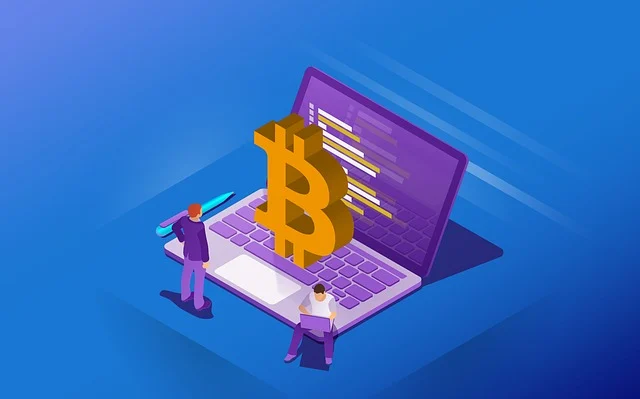1. What Is Crypto Staking Exactly?
Crypto staking is a way for investors to earn rewards by locking their digital assets in a blockchain protocol.
Now a day’s many people search Is Staking and Delegating Crypto the Same in 2025?
Here you can get complete guideline step by step.
Crypto staking is a way for investors to earn rewards by locking their digital assets in a blockchain protocol.
It supports network operations like block validation.
When you stake crypto, you’re helping maintain the blockchain’s security and operations. In return, you earn rewards just like earning interest on a savings account.
Most staking happens on proof-of-stake (PoS) networks like Ethereum, Cardano, and Solana.
These platforms don’t rely on mining but instead depend on participants locking tokens.
It’s a passive income strategy used by both beginner and experienced crypto investors.
And it’s growing fast due to its lower energy cost compared to mining.
Staking also boosts user participation in blockchain governance, making crypto more decentralized.

Learn about: How to Use Crypto30x.com Trust Wallet
Quick link:
2. What Does Delegating in Crypto Mean?
Delegating is a process where a user assigns their stake to a trusted validator node instead of running one themselves.
In proof-of-stake networks, validators verify transactions. But setting one up requires technical skills.
Delegating solves that by letting users support validators without technical know-how.
By delegating, you’re still participating in staking, but indirectly. You lend your crypto power to someone else and share rewards.
The delegated funds remain in your control. You can unstake them later, depending on the protocol’s lock-up period.
Delegating is popular in networks like Cosmos, Tezos, and Solana, where decentralized consensus relies heavily on validators.
Check new update about: Top 7 Crypto Scams 2025: Top 7 to Watch & Avoid in USA
3. Is Staking the Same as Delegating?
Although they’re connected, staking and delegating are not the same.
Staking involves locking your tokens directly to validate blocks or support the network.
Delegating, on the other hand, means you assign your stake to someone else who runs a validator.
In simple terms, staking is direct, and delegating is indirect participation.
Both help the blockchain but at different levels of involvement.
With staking, you manage everything. With delegation, you trust a third party.
Still, both methods offer rewards, help secure the network, and can be un-staked under specific terms.
Look a new blog about: Top 7 Ways to Earn Crypto Online in 2025

How Does Staking Work?
First, you select a staking platform or wallet that supports staking. This could be an exchange like Binance or a wallet like Ledger Live.
Once selected, you lock your tokens into a staking pool. The network uses these tokens to help validate transactions.
In return, you receive staking rewards, often paid out in the same cryptocurrency.
The frequency of rewards depends on the protocol. Some pay daily; others weekly or monthly.
Staking usually requires a lock-up period, during which funds can’t be moved.
5. How Does Delegating Work?
Delegating starts by choosing a validator from a list available in your wallet or platform.
Once selected, you assign your tokens to them. This process is done with a few clicks, especially on platforms like Keplr or Trust Wallet.
The validator adds your stake to their pool and uses it to validate blocks.
You earn a share of their rewards based on your contribution. Some platforms allow auto-compounding, increasing your earnings.
Unlike staking directly, delegating doesn’t need constant attention or technical effort.
6. What Are Validator Nodes?
Validator nodes are the backbone of any PoS network. They are responsible for creating new blocks and confirming transactions.
Each validator needs to stake a minimum number of tokens to participate. This creates a financial incentive to act honestly.
If a validator acts maliciously or goes offline often, they risk getting slashed, which is a penalty.
Validators are ranked based on uptime, commission fees, and reliability. Delegators usually pick the most trustworthy ones.
Without validators, staking and delegating wouldn’t be possible.
7. What Are Staking Rewards?
Staking rewards are like interest earned for locking your crypto. They come from transaction fees and newly created coins.
The reward rate depends on several factors like:
- Network inflation rate
- Number of stakers
- Validator commission
On average, staking rewards range from 5% to 15% annually, depending on the cryptocurrency.
Higher rewards may mean higher risk if the validator isn’t stable or trustworthy.
These rewards can be re-staked for compounding, increasing long-term returns.
8. Are There Any Risks Involved?
Yes, both staking and delegating come with risks.
One major risk is slashing, where misbehaving validators get penalized, affecting your rewards.
Another risk is lock-up periods, where you can’t access your funds immediately.
Some platforms may charge high fees or have poor security, leading to loss.
Delegating to a new or unknown validator can also result in missed rewards or other technical issues.
It’s important to research the validator or platform thoroughly before investing.
9. Which Cryptocurrencies Support Delegating?
Not all coins support delegating. Some of the most popular ones that do include:
- Cosmos (ATOM)
- Tezos (XTZ)
- Solana (SOL)
- Osmosis (OSMO)
- Polkadot (DOT)
These networks offer user-friendly delegating tools within their wallets or apps.
Each has its own set of rules for commissions, unbonding periods, and minimum stake.
These cryptos encourage participation by offering fair rewards for delegators.
10. Best Platforms for Staking and Delegating
There are many platforms for both staking and delegating. Some top options include:
- Binance – Easy staking and auto-compounding
- Ledger Live – Hardware wallet security with delegation features
- Trust Wallet – Delegating directly from mobile
- Keplr Wallet – Popular for Cosmos ecosystem
- Exodus Wallet – Beautiful interface with staking options
Each platform offers unique benefits like low fees, ease of use, or multiple coin support.
Choose based on your security needs, staking goals, and user experience.
Also learn about how to use crypto3x.com wallet.
Benefits of Staking and Delegating
Both methods offer benefits to crypto users:
- Passive Income – Earn rewards while holding your coins
- Network Support – Help secure and decentralize blockchains
- Flexibility – Choose between direct or indirect involvement
- Low Energy Use – Compared to mining, staking is eco-friendly
- Learning – Participating helps you better understand blockchain tech
These benefits make staking and delegating ideal for long-term crypto holders.
They also open doors for financial independence through crypto passive income.
12. Final Thoughts: Which One Is Better?
Whether you choose staking or delegating depends on your experience and interest level.
If you’re tech-savvy and want full control, direct staking might suit you. But if you want a simpler option, delegation is perfect.
Both options support the blockchain, generate rewards, and involve certain risks.
Make sure to research validators, understand fees, and monitor performance.
Ready to start staking or delegating? Choose a reliable platform and let your crypto work for you!
Is staking and delegating the same thing in crypto?
No, staking and delegating are not the same thing.
Staking is a direct process where you lock your tokens.
In delegating, you assign your stake to a validator who validates the blockchain.
How do you get rewards from staking?
When you stake crypto, you participate in network operations.
In return, you get staking rewards — just like a bank’s interest.
Is my crypto safe when delegating?
Yes, in delegating your crypto stays in your wallet.
You just give your voting power to a validator, the ownership remains with you.
Can I delegate without technical knowledge?
Absolutely! Delegating is specially for those people who do not know how to run a validator.
Just select a wallet, choose a validator and press the delegate button.
Which is more profitable between staking and delegating?
Both are profitable, but staking is direct and gives more control.
Delegating is easy, but validator’s commission is deducted.
Can one earn passive income from both staking and delegating?
Yes, you get regular rewards from both.
This is the best way to earn passive income from crypto.
Which are the best coins for staking or delegating?
Some popular coins are:
Cosmos (ATOM)
Tezos (XTZ)
Solana (SOL)
Cardano (ADA)
All of these have easy delegation and good ROI.
Is there a lock-in period in staking?
Yes, most blockchains have a lock-in period of 7 to 30 days.
During this time you cannot withdraw your crypto.
What will happen if the validator becomes inactive?
If the validator goes offline or misbehaves, you are at risk of slashing.
That’s why choose a trusted validator.
Can staking be done from mobile?
Yes! You can do both staking and delegation from apps like Trust Wallet, Exodus, or Ledger Live – without any coding knowledge

